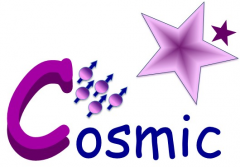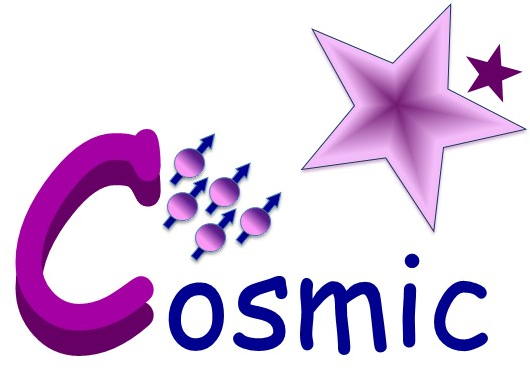
COSMIC: COmpressed Sensing for Magnetic resonance Imaging & Cosmology
This project has been funded by the CEA Division of Fundamental Research for 1 year in 2016 to foster collaborations between CEA research scientists and engineers working in biomedical imaging at NeuroSpin( team leader: P. Ciuciu) and astrophysics at the CosmotStat Lab (team leader: JL Starck) within the Astrophysics Department) on Compressed Sensing (or Compressive Sampling).
Compressed Sensing is a mathematical principle that has been elaborated for now 10 years by two groups in the US: (i) Emmanuel Candès and his colleagues Terence Tao and Justin Romberg on the one hand and (ii) David Donoho on the other hand. The idea is to surpass the Shannon-Nyquist sampling rate by collecting less data samples while allowing the perfect (at least in a noiseless setting) recovery of the underlying signal or image.
This approach has been popularized in Magnetic Resonance Imaging (MRI) over the last decade as well as in astrophysics (noticeably in radio-astronomy). For instance, its first application to MRI emerged in 2007 through the sparse MRI paper by Miki Lustig and his colleagues.
Through COSMIC, our interactions will allow us to share different expertise both at the acquisition and reconstruction stages in order to speed-up acquisition or to improve image quality, both in MRI and in radio-astronomy (thanks to the interferometry principle).

